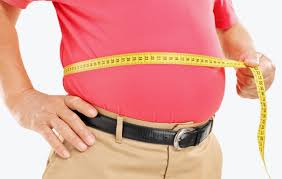 US Family Health Plan – a TRICARE Prime health program – is one of the most
US Family Health Plan – a TRICARE Prime health program – is one of the most
comprehensive health programs in the U.S. today. It’s available exclusively to U.S. military retirees and to the families of deployed military service members. We care about the health of all of our members, and, needless to say, that includes our men. We like to stay on top of the latest health information so our members can know what they need to know to be healthy and happy. This June, as we celebrate Men’s Health Month and Father’s Day, we are taking the opportunity talk about 4 important health trends that are affecting men. This tips can make a difference in helping you stay at your healthy best today.
- Prostate cancer is being diagnosed at younger ages. The number of younger men diagnosed with prostate cancer has increased nearly six-fold in the last 20 years. Today, over 10 percent of new prostate cancer diagnoses in the U.S. occur in men under the age of 55. What’s more alarming is that when prostate cancer is found in younger men, it is often much more aggressive with developed tumors. Prostate cancer, when it typically affects men in their 60s, 70s and older, is often slow-growing and easier to treat.
- The main test for prostate health – Prostate Specific Antigen (PSA) screenings, have historically been administered to men 50 and over. But with the pronounced increase in prostate cancer incidence in men under 40, it’s now recommended that the baseline PSA testing start at age 40 as well. There is no harm in knowing your numbers and it is important to catch this condition as early as you can. So keep time on your side.
- Be sure to share your prostate family history with your physician, as you get tested. Those with a family history (father or brother) of prostate cancer are twice as likely to be diagnosed with the disease, and African American men are almost 60% more likely to get prostate cancer than the general population. The earlier you tackle the test, the better off you will be, because an early diagnosis can make a big difference. US Family Health Plan offers the type of comprehensive coverage that will allow you to get the check-ups you need in a timely way. Remember, regular check-ups are part of the key to remaining healthy.
- Exercise can help lower age-related cholesterol. High LDL cholesterol puts men at a greater risk for heart attack, stroke and peripheral artery disease. Genetics also play a role in the development of high cholesterol. But lifestyle choices such as unhealthy eating, lack of exercise, smoking, excessive alcohol intake all contribute to high cholesterol.

- New research indicates that men who exercise regularly, especially with aerobics (walking, running, jumping, cycling), have a greater chance of delaying age-related high cholesterol. As always, make sure you get your cholesterol regularly checked to ensure LDL (low density lipoprotein) levels remain low. This type of unhealthy “bad” cholesterol has the ability to clog arteries and can ultimately lead to sometimes fatal heart disease. US Family Health Plan’s provides you with kind of comprehensive coverage that is designed to help you stay on top of your LDL numbers and be ready to take action when needed.
- Male menopause is real. For those of you who think women are ones who experience menopause, it’s time to re-think that. Many men experience some of the very same symptoms. These can include low sex drive, hot flashes, depression, irritability, mood swings, increased body fat, and decreased energy. These arise when mid-life hormonal changes affect the body. They are perfectly normal in men and in women.The main distinction with male menopause, also known as andropause, is that it is a result of a gradual decrease in testosterone. To the contrary, female menopause is caused by a sudden decrease in the production of hormones. Here are the steps to take if you feel you may be experiencing the onset of male andropause:
- Watch for sudden weight gain. In mid-life, pay attention to your weight and what you eat. If you start to gain suddenly, especially in the belly area, you may have andropause. Once you start to lose weight by adjusting your everyday eating habits,
 you will start to see your testosterone levels increase again. The rule of thumb is that your waist should be your height in inches divided by 2. For men, your waist circumference should be less than 40 inches.
you will start to see your testosterone levels increase again. The rule of thumb is that your waist should be your height in inches divided by 2. For men, your waist circumference should be less than 40 inches. - Make sure you’re getting your daily Vitamin D. Vitamin D is very important to maintaining good testosterone levels. Foods like shellfish, tuna, salmon, egg yolks, beans and others work great. Also consider taking vitamin D supplements, 1,000-2,000 IU per day (that’s what I personally do,) and monitor your levels after that with your doctor.
- Take note of your libido. See your urologist if you st art to experience any changes in sexual function, libido, or sleep pattern. Also note any changes in muscle strength,
 bone density or weight gain. Fertility issues should be checked on as well. While these symptoms can vary drastically from man to man, if you are experiencing any one of them, it is important to get a check-up. After your doctor’s evaluation, a treatment regimen can be established to help you get your “mojo” back.
bone density or weight gain. Fertility issues should be checked on as well. While these symptoms can vary drastically from man to man, if you are experiencing any one of them, it is important to get a check-up. After your doctor’s evaluation, a treatment regimen can be established to help you get your “mojo” back.
- Drinking coffee may help offset erectile dysfunction. Erectile dysfunction, also known as impotence, occurs when men are unable to keep their erection firm enough to engage in sexual intercourse with their partner. Men often experience erectile dysfunction as they get older because with age, a man’s level of testosterone decreases. This causes changes in sexual function such as impotence or lower libido. The majority of erectile dysfunction cases are caused by a combination of psychological and medical conditions. About 70 percent of ED cases are caused my medical conditions and about 30 percent of ED cases are caused by psychological conditions.
- A new study suggests that drinking a few cups of coffee each day could lower a man’s risk for erectile dysfunction. Researchers from the University of Texas Health Science Center at Houston found that men who drank at least two cups of coffee each day had a 42 percent reduction in erectile dysfunction problems. While middle
 aged men are more likely to experience erectile dysfunction, it can affect younger men too. About 18.4% of all American men 20 years old and older suffer from this condition. It is common for men to occasionally experience erectile dysfunction, especially when under a lot of stress, due to overconsumption of alcohol, or with fatigue. However, if this condition occurs on a regular basis, it may signal other underlying health conditions that are in need of treatment. It may also be an indicator for mental or emotional issues.
aged men are more likely to experience erectile dysfunction, it can affect younger men too. About 18.4% of all American men 20 years old and older suffer from this condition. It is common for men to occasionally experience erectile dysfunction, especially when under a lot of stress, due to overconsumption of alcohol, or with fatigue. However, if this condition occurs on a regular basis, it may signal other underlying health conditions that are in need of treatment. It may also be an indicator for mental or emotional issues.
Hopefully these tips can help you and your family make the health decisions that will be best for you. And once you do, remember that US Family Health Plan is to support you as well. Our powerful network of physicians and health professionals can help navigate you through any major check-ups and ensuing healthcare decisions that have to be made. Our mantra is for you and your family to be healthy and happy. And during Men’s Health Month, we give a particular shout out to our valiant men out there. Stay on top of your checkups, your numbers and your health! And for all the fathers out there, we wish you a Happy Father’s Day too!

